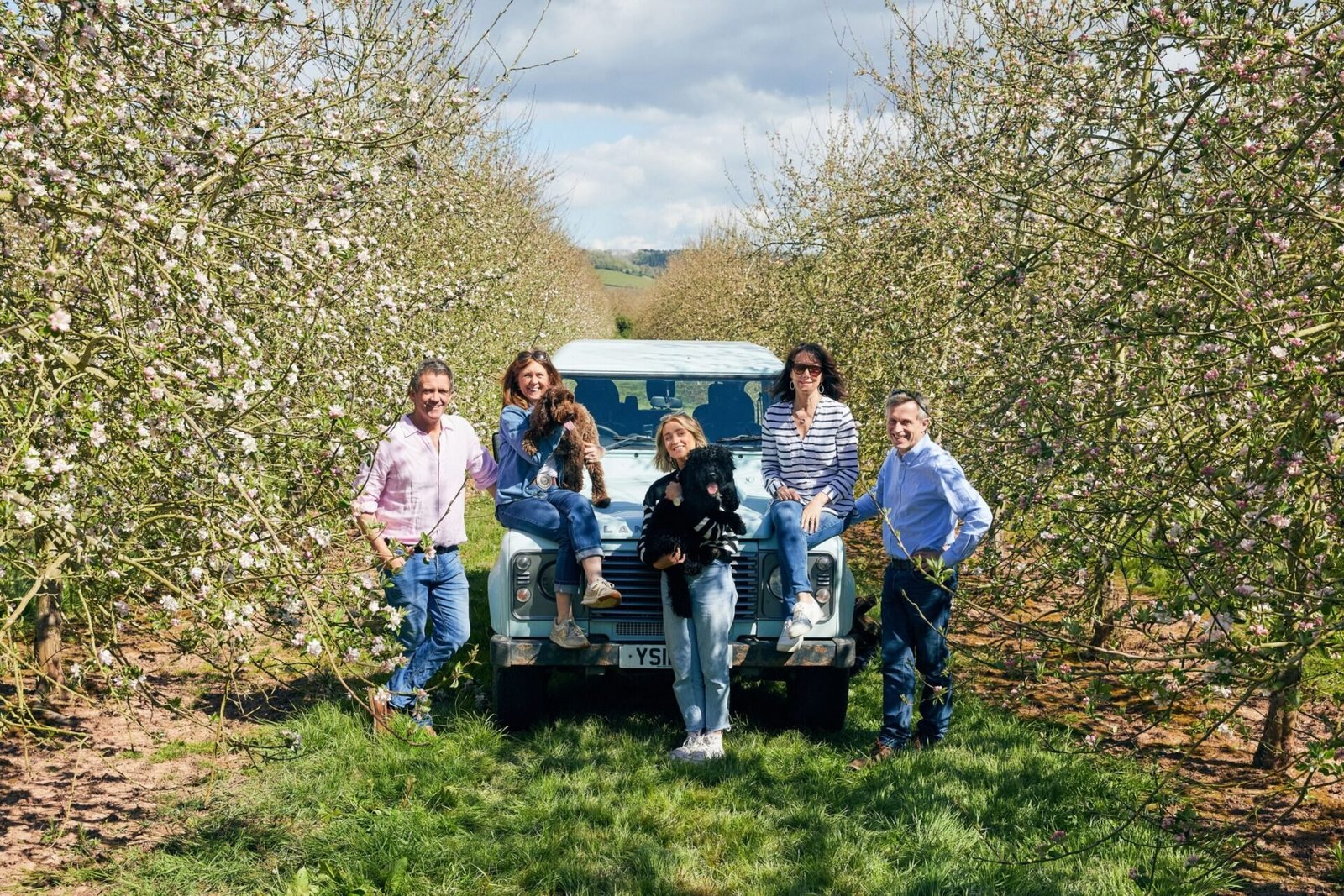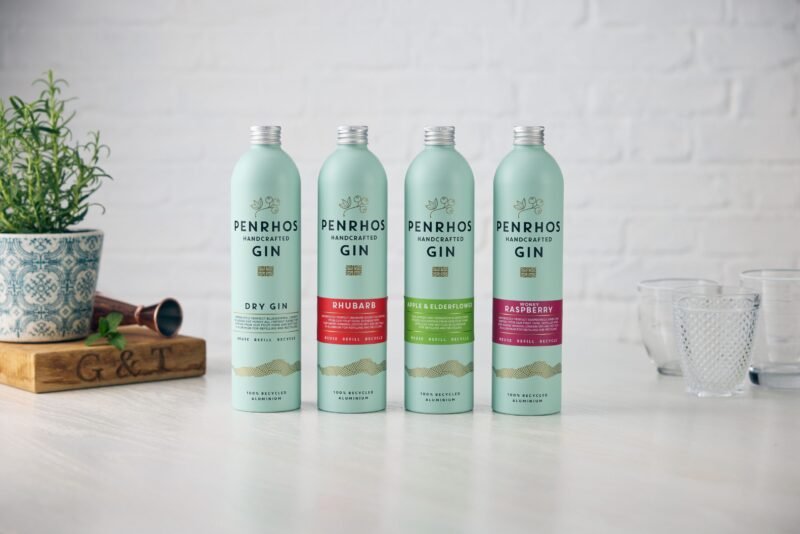At Penrhos fruit farm, we live every day surrounded by greenery, our bees and beautiful nature. When our imperfectly perfect fruit wasn’t good enough for the shop shelf, and was going to waste, we thought there must be a better way for our farm and for the planet. And there was…
We started Penrhos Spirits not because we thought the world needed another gin brand, but because we wanted better for our wibbly wobbly fruit. And it just so happened it created a tasty gin that was truly unique with its blueberry flavour notes.
From there we’ve been making better use of our apples from the orchards, our honey from the apiaries, rhubarb from the farm and wibbly wobbly raspberries to add flavoured gins, a non-alcoholic spirit and rum to our family.
But something was niggling us. We were curious yet again, about a better way for our bottles too. A path of experimentation and discovery led us to our new aluminium bottles. Custom-made and completely reusable, recyclable and refillable, it felt like the perfect home for our imperfectly perfect fruit.
Penrhos Dry; freshly grown for sipping, bottled for better.

Introducing our new bottles, fully recyclable aluminium bottles with our limited edition ‘Wonky Raspberry’ gin. Made from 100% recycled aluminium cutting energy requirements, packaging, transport and our carbon footprint.
At Penrhos we want to improve the circular economy by helping create easy solutions that help our customers and the environment. Did you know that 75% of all aluminum ever produced is still in use today?

WHY IS ALUMINIUM MORE SUSTAINABLE THAN GLASS?
Aluminium uses less energy than glass. The melting point is 660C vs 1700C.
The weight is 100g vs 750g, therefore only 5% of the energy is required.
Aluminum can be constantly recycled with no change in properties. Recycling an aluminum can save 95% of the energy used to make a new can and no new material needs to be mined or transported.
Almost 75% of aluminium ever produced is still in the material loop today. Aluminium is a circular material, capable of being recycled multiple times without losing its original properties.
That extra weight with glass bottles means vehicles transporting them consume more fossil fuels to deliver the same amount of liquid. For these reasons, it has been found that glass bottles have about a 95% bigger contribution to global warming than aluminium bottles.
Lauching in January, be part of our movement, #bottledforbetter